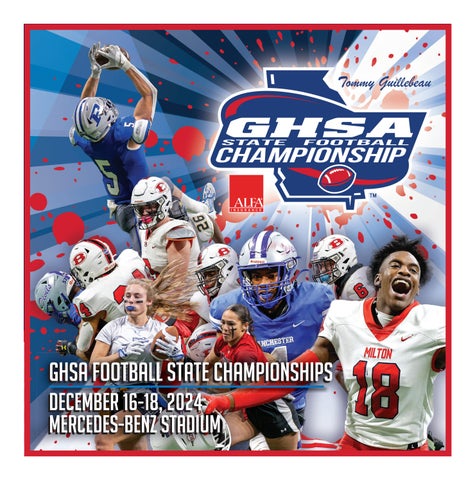NIL
Softball Falls to Mercer in SoCon Championship Game
Next Game: vs. NCAA Regionals 5/16/2025 | May. 16 (Fri) vs. NCAA Regionals History SPARTANBURG, S.C. — Chattanooga needed just one win Saturday to claim another Southern Conference softball tournament title, but Mercer got in the way. The Bears rallied late in the first game to beat the Mocs […]
SPARTANBURG, S.C. — Chattanooga needed just one win Saturday to claim another Southern Conference softball tournament title, but Mercer got in the way. The Bears rallied late in the first game to beat the Mocs 6-5 and force the second game. They would go on to win the second game and claim their first SoCon Tournament crown.
The Mocs had nine hits in the first game and 12 for the day with three doubles and seven RBI. Acelynn Sellers was 1-for-1 with a double, two RBI and five walks and was hit by a pitch. Presley Williamson was 1-for-2 with a double as a pinch hitter. Camryn Cernuto was 3-for-8 and scored two runs. Peja Goold started both games and struck out a tournament-best 10 in 12 innings pitched.
CHATTANOOGA 5, MERCER 6
The Mocs put up five runs through the first two innings, but the Bears plated six in the late innings to claim a 6-5 win over Chattanooga and force the “if” game in the Southern Conference Championship.
The Mocs scored three runs in the first on a trio of singles, a walk and a hit by pitch. Kailey Snell was hit by a pitch to start the inning and Camryn Cernuto beat out the throw to first to put two runners on. Olivia Lipari sacrificed both over and Acelynn Sellers was walked on four pitched.
Baileigh Pitts took a 3-2 count through the left side and drove in the first two runs of the game. Raven Jones, two batters later, drove in the third run of the inning with a single up the middle.
Chattanooga put together a two-out rally in the second to push the lead to five runs. With two outs, Cernuto picked up her second hit of the game and took second on a single by Lipari. Sellers, doubled to left field, driving in the pair to make it 5-0.
The Mocs stranded two in the third and fourth and went down in order in the final three innings.
Mercer cut the lead to one run in the fifth with a three-run triple and a sac fly to make it 5-4. In the sixth, the Bears added two more to take the lead and held on for the win.
Chattanooga moves to 41-14 overall and Mercer improves to 37-24.
Taylor Long is now 13-3 on the year. She struck out one, facing 11 batters. Peja Goold got the start and struck out seven, walked six and gave up four earned runs. Camryn Cernuto went 3-for-4 with two runs scored. Sellers was 1-for-1 with three walks and two RBI. Pitts drove in two runs on one hit and Jones tallied an RBI on one hit.
GAME 2: CHATTANOOGA 2, MERCER 5
The Mocs scored a run in the bottom of the first to tie the deciding game Saturday, but wouldn’t get on the board again until the sixth. However, Mercer spread five runs over six innings to claim the win and its first SoCon Tournament title.
Kailey Snell led off the bottom of the first with a single up the middle and advanced to second on a ground out by Camryn Cernuto. Snell scored from second on a double into the gap in right center by Olivia Lipari. Acelynn Sellers was walked again and the pair was stranded.
Mercer struck first with a double down the left field line to score the runner from second. The Bears added two more in the third on a two-run blast from Tori Hedgecock to make it 3-1. In the fourth Hannah Rivers doubled to left and scored on an error at the fence putting Mercer out front 4-1.
Both teams added another run in the sixth. Mercer led off with a double and Rivers reached on a strike out swinging throwing error to first to leave runners at the corners. A pinch hit single drove in the fifth run and an error loaded the bases. The next at bat drew a play at the plate, stopping another run and a fly out ended the threat.
In the bottom of the sixth the Mocs added a second run. Sellers was hit to lead off the inning. With one out and one on, Presley Williamson doubled to right center to put runners at second and third. Raven Jones grounded out and pinch runner Abi Pikas trotted home to make it 5-2.
Chattanooga closed out the year at 41-15 while laying claim to its 16th SoCon Regular Season title. Peja Goold tallied 25 wins and was third in the NCAA for shutouts with eight. She was named the SoCon Pitcher of the Year for the second straight season. Olivia Lipari was the Player of the Year and Frank Reed was named the league’s Coach of the Year. Taylor Long and Camryn Cernuto were named to the All-Conference Second Team while Lexi Cooley earned a spot on the All-Freshman Team.
FOLLOW CHATTANOOGA SOFTBALL
For the most up-to-date information and news regarding Chattanooga Softball, please follow @GoMocsSB on Twitter & Instagram and ChattanoogaSB on Facebook.
NIL
NCAA President declares who’s in charge of NIL
Speaking in Indianapolis, hometown of its headquarters, NCAA President Charlie Baker divulged that college athletics’ top governing body … will not be governing NIL, if the House Settlement finally passes as expected. During the Knight Commission’s annual spring meeting, held this day inside Indianapolis’ downtown Marriott, Baker told the assembled crowd that college athletics’ Power […]
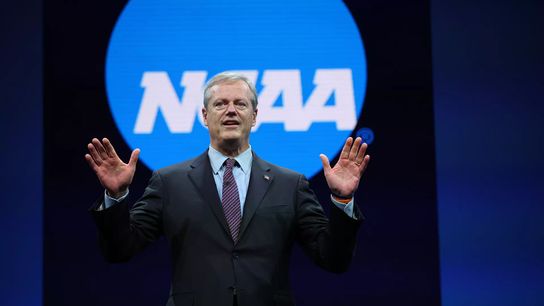
Speaking in Indianapolis, hometown of its headquarters, NCAA President Charlie Baker divulged that college athletics’ top governing body … will not be governing NIL, if the House Settlement finally passes as expected.
During the Knight Commission’s annual spring meeting, held this day inside Indianapolis’ downtown Marriott, Baker told the assembled crowd that college athletics’ Power Conferences — ACC, Big Ten, Big 12 and SEC — would have oversight of implementing the rules of the long-awaited House Settlement — if the measure is granted final approval in the coming days or weeks in the Oakland, California, courtroom of U.S. District Court of Northern California Judge Claudia Wilken.
Baker, as detailed by Front Office Sports, among other outlets, disclosed that the Power Conferences would have oversight of the revenue-sharing distribution component, as well as of the vetting of Name, Image and Likeness. (NIL) deals.
The settlement, in the range of $2.8 billion and already agreed to by both sides but awaiting Wilken’s stamped approval, not only outlines the revenue-distribution component moving forward, with the measure set to start at up to $20.5 million in distribution per participating school July 1 of this year, but also provides backpay compensation from the NCAA as part of the settlement terms.
Additionally, the future vetting of NIL deals would include a third-party arbiter — Deloitte, which would be in charge of determining fair-market value of NIL deals for student-athletes in excess of $600.
The news about the NCAA’s imminent step-back process arrives as all the Power Conferences hold their own various spring meetings. The ACC’s meetings concluded last week in Florida; the Big Ten’s are presently in session in Los Angeles and next week, the SEC meets in Sandestin, Florida, for its annual gathering of all conference leaders, including SEC Commissioner Greg Sankey, as well as every member school’s president, athletics director and head football coach, among other dignitaries. Big 12 Conference meetings also are scheduled in the coming days.
Baker, as quoted in the Front Office Sports report, says, “The Power Conferences’ response is to create an entity, the College Sports Commission. The point behind that (College Sports Commission) was to create an entity that would see the cap management system and and the third-party NIL system, have rules associated with both; create enforcement parameters for violating those rules under the rubric that would be the theoretical injunction.”
In layman’s terms: it’s a step from college’s athletics latest, emerging power structure to lend some semblance of guardrails and oversight in the upcoming revenue-sharing era in order to slow down or thwart what essentially is the current “pay-for-play” system, as an NCAA official detailed earlier this month at the National Football Operations Organization’s annual meetings in Frisco, Texas, and as FootballScoop previously detailed.
ESPN has previously reported that the CEO of the fledgling, not-yet-fully-formed College Sports Commission, would be granted power moving forward to dole out discretionary punishments if it is determined that a school violated or circumvented the parameters of the House Settlement revenue-sharing agreement and corresponding terms.
Every conference, in same fashion, is not only confronting the expected knowns of the proposed House Settlement but also dealing with the still-gray areas; indeed, without federal regulations or oversight, state laws continue to take centerstage, such as Tennessee’s Danny White, the school’s fourth-year athletics director and former UCF boss, indicating the Vols would adhere to the state’s regulations and not the more stringent cap of the $20.5 million proposed by the House Settlement — a number that sources told FootballScoop was a step in the right direction favored by Sankey for a potentially more equal playing field in the league.
Additionally, the Power Conferences continue to game plan strategy surrounding the upcoming 12-team College Football Playoff, the last agreed-upon format, as well as the imminent expansion of the field to at least 14 if not 16 teams in 2026.
NIL
Power Conferences–Not the NCAA–Will Police NIL Going Forward
Share Tweet Share Share Email In a seismic shift for college athletics, NCAA President Charlie Baker confirmed Tuesday that if the House v. NCAA settlement is approved, the NCAA will no longer enforce rules surrounding player compensation. According to a report from Front Office Sports’ Amando Christovich, the Power Four conferences—SEC, Big Ten, ACC, and […]
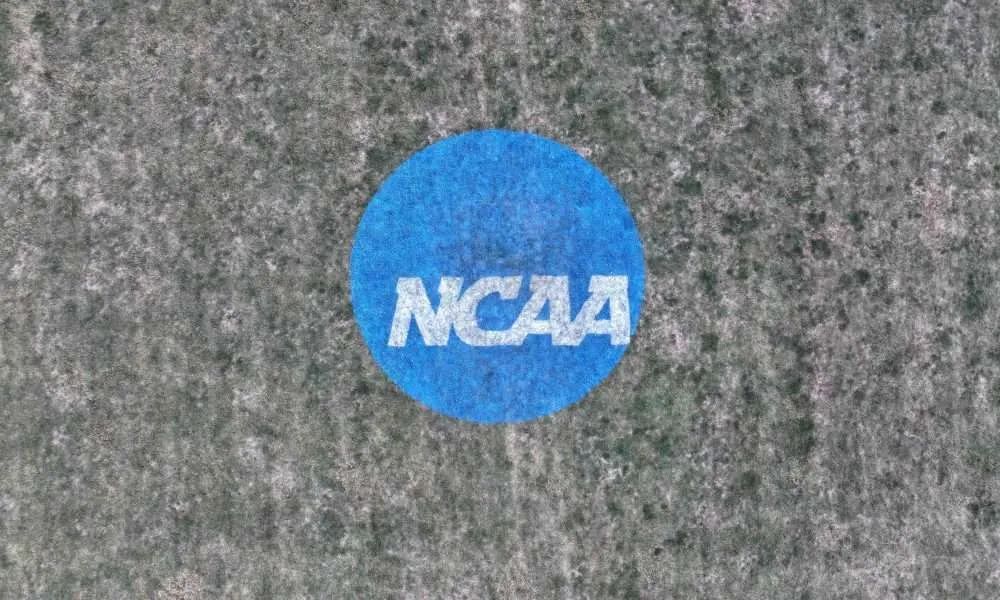
In a seismic shift for college athletics, NCAA President Charlie Baker confirmed Tuesday that if the House v. NCAA settlement is approved, the NCAA will no longer enforce rules surrounding player compensation.
According to a report from Front Office Sports’ Amando Christovich, the Power Four conferences—SEC, Big Ten, ACC, and Big 12—will enforce the proposed athlete compensation model, including revenue-sharing caps and the regulation of NIL collective deals.
Baker’s comments, made at a Knight Commission event in Indianapolis, serve as a formal passing of the baton as the NCAA prepares to exit the amateurism enforcement business.
Related: Power Four Conferences Drafting ‘Contract’ to Combat NIL
The House settlement, still pending final approval from Judge Claudia Wilken, includes $2.8 billion in back damages to athletes and opens the door for schools to share up to $20.5 million annually with athletes. It also establishes a third-party clearinghouse—nicknamed “NIL Go”—to monitor NIL deals for market value and pay-for-play violations.
That clearinghouse will be run by Deloitte but governed by a newly formed “College Sports Commission,” created and overseen by the Power Four—not the NCAA. This commission will also adjudicate rule violations through a binding arbitration process, not open court.
However, while the NCAA escapes direct legal exposure, as the burden will now fall on the conferences, leaving antitrust lawsuits, which have dogged the NCAA for decades, to soon become targeted at the leagues themselves.
The Power Four have already circulated a “membership agreement” requiring schools to abide by the settlement terms and waive their right to sue. Some athletic departments are calling it a legal landmine.
“There’s a general consensus that it’s a mess—and going to keep me busy,” said attorney Darren Heitner.
The decision signals a fundamental realignment: the NCAA keeps control of eligibility and championships, while the Power Four effectively becomes college sports’ new regulatory authority. Whether they succeed where the NCAA failed remains to be seen, but July 1, the proposed launch date, is coming fast.

NIL
NCAA President declares who’s in charge of NIL
Speaking in Indianapolis, hometown of its headquarters, NCAA President Charlie Baker divulged that college athletics’ top governing body … will not be governing NIL, if the House Settlement finally passes as expected. During the Knight Commission’s annual spring meeting, held this day inside Indianapolis’ downtown Marriott, Baker told the assembled crowd that college athletics’ Power […]

Speaking in Indianapolis, hometown of its headquarters, NCAA President Charlie Baker divulged that college athletics’ top governing body … will not be governing NIL, if the House Settlement finally passes as expected.
During the Knight Commission’s annual spring meeting, held this day inside Indianapolis’ downtown Marriott, Baker told the assembled crowd that college athletics’ Power Conferences — ACC, Big Ten, Big 12 and SEC — would have oversight of implementing the rules of the long-awaited House Settlement — if the measure is granted final approval in the coming days or weeks in the Oakland, California, courtroom of U.S. District Court of Northern California Judge Claudia Wilken.
Baker, as detailed by Front Office Sports, among other outlets, disclosed that the Power Conferences would have oversight of the revenue-sharing distribution component, as well as of the vetting of Name, Image and Likeness. (NIL) deals.
The settlement, in the range of $2.8 billion and already agreed to by both sides but awaiting Wilken’s stamped approval, not only outlines the revenue-distribution component moving forward, with the measure set to start at up to $20.5 million in distribution per participating school July 1 of this year, but also provides backpay compensation from the NCAA as part of the settlement terms.
Additionally, the future vetting of NIL deals would include a third-party arbiter — Deloitte, which would be in charge of determining fair-market value of NIL deals for student-athletes in excess of $600.
The news about the NCAA’s imminent step-back process arrives as all the Power Conferences hold their own various spring meetings. The ACC’s meetings concluded last week in Florida; the Big Ten’s are presently in session in Los Angeles and next week, the SEC meets in Sandestin, Florida, for its annual gathering of all conference leaders, including SEC Commissioner Greg Sankey, as well as every member school’s president, athletics director and head football coach, among other dignitaries. Big 12 Conference meetings also are scheduled in the coming days.
Baker, as quoted in the Front Office Sports report, says, “The Power Conferences’ response is to create an entity, the College Sports Commission. The point behind that (College Sports Commission) was to create an entity that would see the cap management system and and the third-party NIL system, have rules associated with both; create enforcement parameters for violating those rules under the rubric that would be the theoretical injunction.”
In layman’s terms: it’s a step from college’s athletics latest, emerging power structure to lend some semblance of guardrails and oversight in the upcoming revenue-sharing era in order to slow down or thwart what essentially is the current “pay-for-play” system, as an NCAA official detailed earlier this month at the National Football Operations Organization’s annual meetings in Frisco, Texas, and as FootballScoop previously detailed.
ESPN has previously reported that the CEO of the fledgling, not-yet-fully-formed College Sports Commission, would be granted power moving forward to dole out discretionary punishments if it is determined that a school violated or circumvented the parameters of the House Settlement revenue-sharing agreement and corresponding terms.
Every conference, in same fashion, is not only confronting the expected knowns of the proposed House Settlement but also dealing with the still-gray areas; indeed, without federal regulations or oversight, state laws continue to take centerstage, such as Tennessee’s Danny White, the school’s fourth-year athletics director and former UCF boss, indicating the Vols would adhere to the state’s regulations and not the more stringent cap of the $20.5 million proposed by the House Settlement — a number that sources told FootballScoop was a step in the right direction favored by Sankey for a potentially more equal playing field in the league.
Additionally, the Power Conferences continue to game plan strategy surrounding the upcoming 12-team College Football Playoff, the last agreed-upon format, as well as the imminent expansion of the field to at least 14 if not 16 teams in 2026.
NIL
NCAA Won’t Enforce House Settlement Rules
NCAA Won’t Enforce House Settlement Rules Privacy Manager Link 0
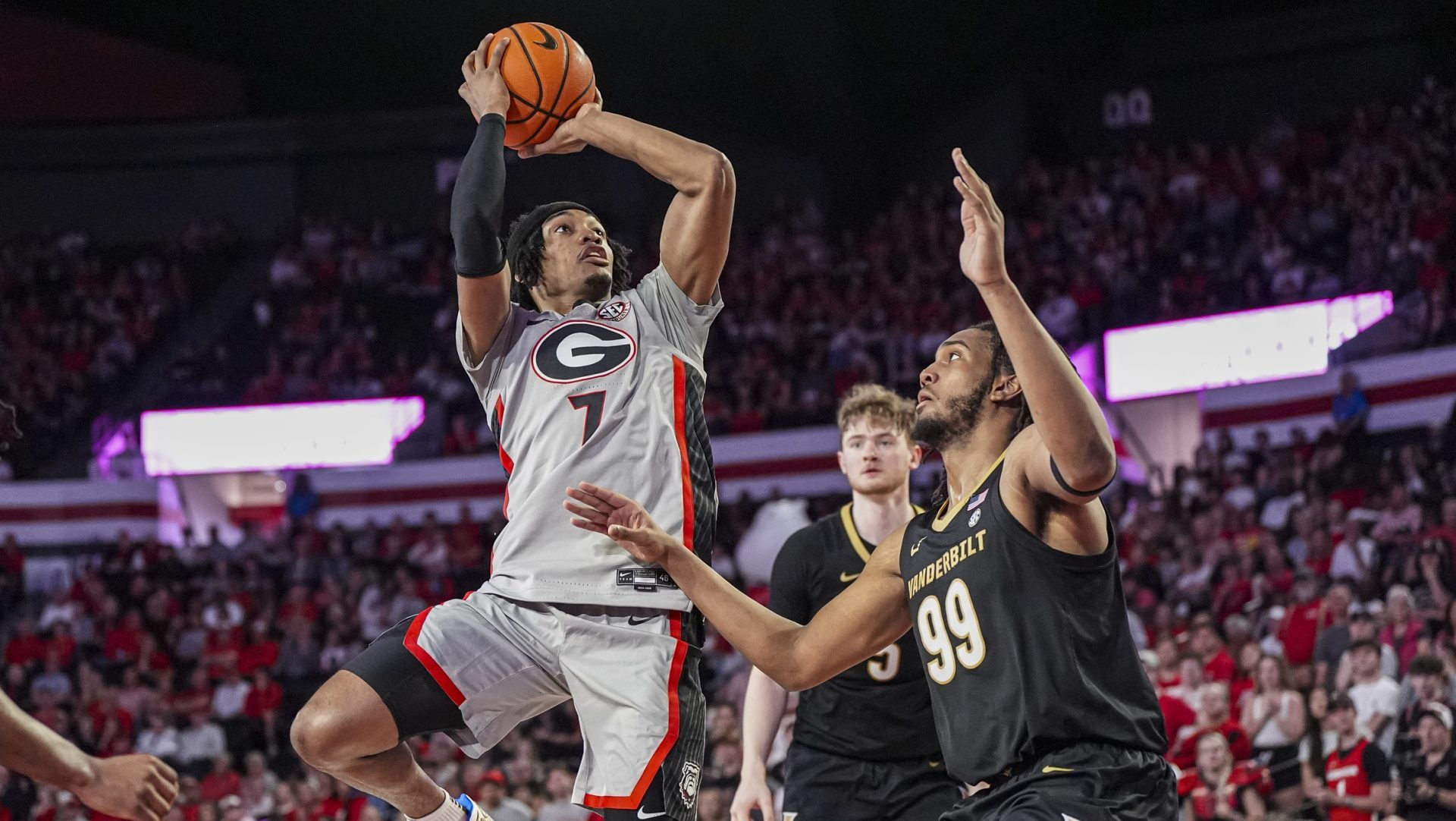
NIL
Florida Lands Arkansas Star Boogie Fland in Transfer Portal
Arkansas transfer Boogie Fland has committed to UF following a two-day visit, Fland told ESPN today. The former five-star recruit is represented by former Florida Gators star Mike Miller. Fland flirted with the idea of turning pro and attended the NBA Draft Combine but withdrew his name Sunday. The 6’2 guard ranked No. 42 in […]
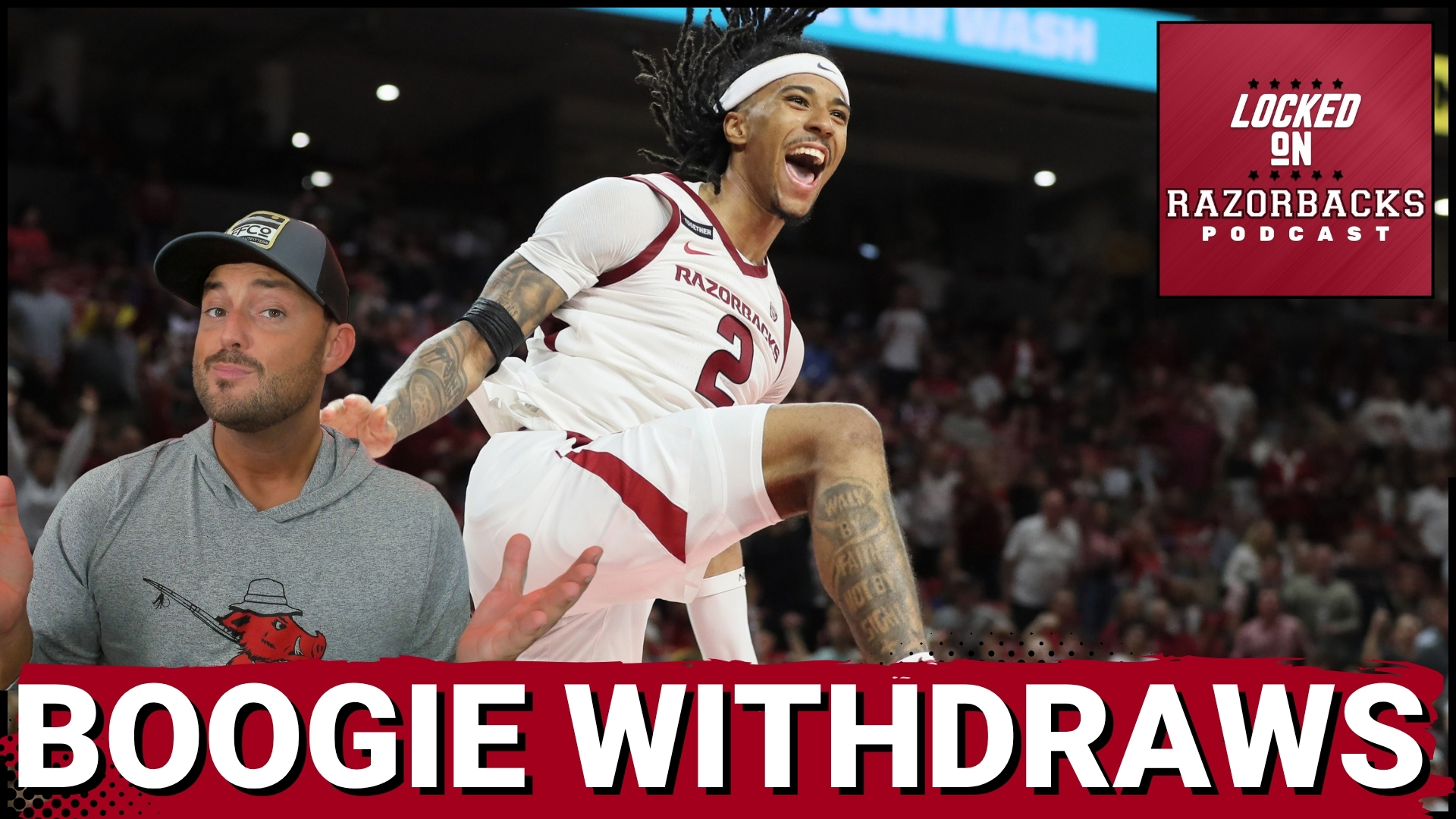
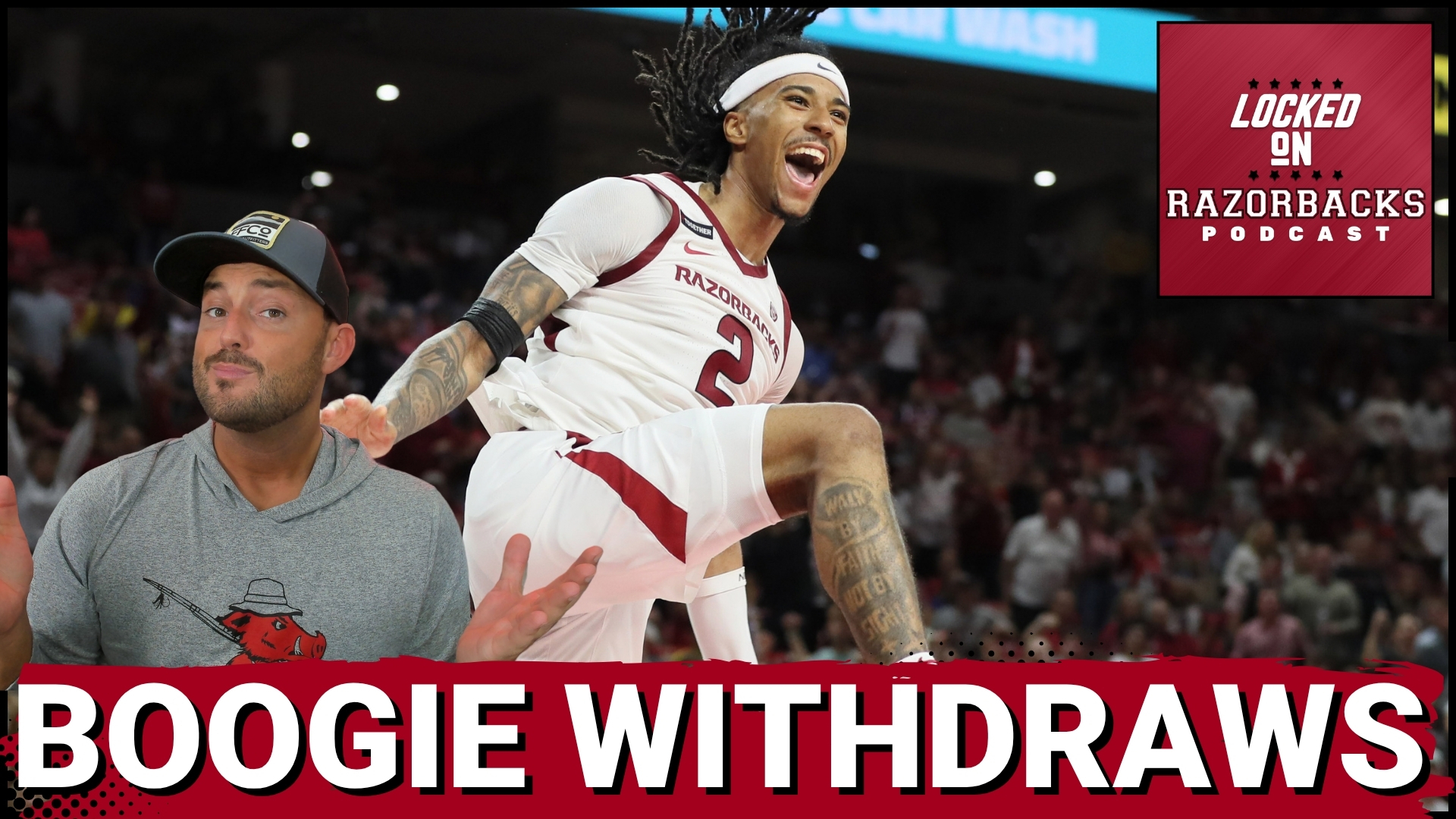

Arkansas transfer Boogie Fland has committed to UF following a two-day visit, Fland told ESPN today. The former five-star recruit is represented by former Florida Gators star Mike Miller.
Fland flirted with the idea of turning pro and attended the NBA Draft Combine but withdrew his name Sunday. The 6’2 guard ranked No. 42 in ESPN’s pre-draft rankings and was a projected second round pick.
Arkansas G Boogie Fland has committed to Florida
Todd with an absolute masterclass in the transfer portal
Back to back champs loading
pic.twitter.com/Pm3UjqbDFg
— Florida Gators
(@gatorsszn) May 20, 2025
How He Got to Gainesville
The New York native was a five-star recruit and McDonald’s All-American coming out of Archbishop Stepinac High School. Fland averaged 15.1 points, 5.7 assists and 3.4 rebounds over his first 18 games, before injuring his hand against Florida, ironically.
Fland was highly sought after in the portal and according to 247Sports transfer portal rankings, he is a five-star transfer portal prospect and the eight-best overall player in the portal.
Boogie Fland | Ball Screen IQ
• great PG’s understand coverages & how to beat them. Boogie does great job
• playing with great pace coming off the BS – plays out of the half turn while making contact
• understands when to shoot the 3, middy, floater or finish at the rim pic.twitter.com/PY4Yg2Ne7Z
— Harp (@3SeedTraining) February 18, 2025
According to Jon Rothstein, Fland was focused on the draft and only entered the portal to keep his options open. The decision to withdraw from the draft was likely due to his second-round draft grade and possible NIL earnings.
When Fland entered the transfer portal just before the late April deadline, Florida was already mentioned as a possible destination. The interest became concrete after Denzel Aberdeen left Florida for Kentucky, leaving a spot open for Fland at point guard.
What’s Next
Fland joins Princeton transfer Xaivian Lee and Ohio University transfer AJ Brown as the Gator’s latest additions. This trio hopes to replicate the production Florida received from Walter Clayton Jr. Will Richard and Alijah Martin.
With Fland’s commitment, the Gators could be favorites to win it all again – especially if starting forward Alex Condon withdraws his name from the NBA draft and returns. Florida center Rueben Chinyelu announced Monday he is withdrawing from the draft and will be back with the Gators for another season.
NIL
College football leaders propose historic rules enforcement body: report
Key leaders from college football’s major conferences are circulating a binding document that would completely transform how player compensation rules are enforced in the sport going forward, according to a report from Yahoo Sports. The contract would create a new College Sports Commission, an entity designed towards enforcing those rules, and would require all Power […]
Key leaders from college football’s major conferences are circulating a binding document that would completely transform how player compensation rules are enforced in the sport going forward, according to a report from Yahoo Sports.
The contract would create a new College Sports Commission, an entity designed towards enforcing those rules, and would require all Power Four schools to sign it or risk being thrown out of their conferences and having member schools refuse to play against them.
“You have to sign it, or we don’t play you,” one athletic director who has viewed the document said, per the report.
In addition, the deal would limit the ability of schools to sue over any enforcement decisions in a move that would radically reshape rule governance in college football.
Should the document be signed, the commission would create an enforcement power that would make schools subject to decisions by an official NIL clearinghouse that would judge whether deals are in line with perceived market value.
It would also ensure that schools are in compliance with the forthcoming House vs. NCAA settlement that is expected in the near future and will allow schools to directly pay players for the first time in college sports history.
The prospective agreement and the commission it aims to create comes as several states are looking to craft laws that could prevent the House settlement from being legally enforceable, most recently Tennessee.
Gov. Bill Lee signed a Senate Bill that would allow state schools and their NIL sports collectives to break House settlement rules and prevent college sports’ enforcement bodies from penalizing those schools.
It’s a direct challenge to the NCAA and power conferences’ ability to regulate revenue-sharing with student-athletes.
And now in response, some of college football’s leaders are hoping to get out in front of that development and bring their member schools in line.
(Yahoo)
—
-
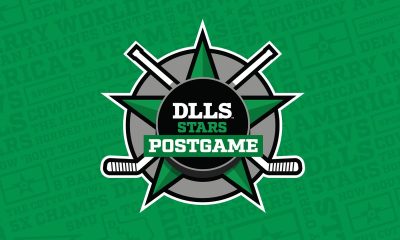
 Fashion2 weeks ago
Fashion2 weeks agoHow to watch Avalanche vs. Stars Game 7 FREE stream today
-

 High School Sports2 weeks ago
High School Sports2 weeks agoWeb exclusive
-
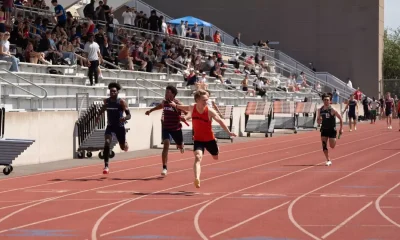
 Sports2 weeks ago
Sports2 weeks agoPrinceton University
-
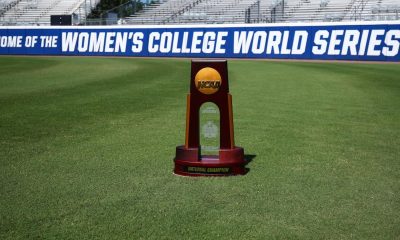
 Sports2 weeks ago
Sports2 weeks ago2025 NCAA softball bracket: Women’s College World Series scores, schedule
-

 Motorsports2 weeks ago
Motorsports2 weeks agoBowman Gray is the site of NASCAR’S “Advance Auto Parts Night at the Races” this Saturday
-
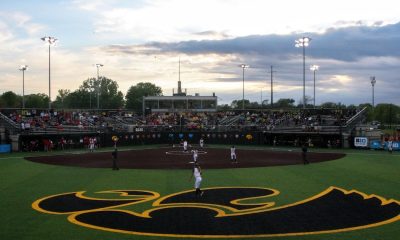
 NIL2 weeks ago
NIL2 weeks ago2025 Big Ten Softball Tournament Bracket: Updated matchups, scores, schedule
-
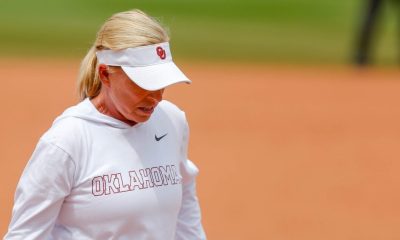
 NIL2 weeks ago
NIL2 weeks agoPatty Gasso confirms Sophia Bordi will not finish season with Oklahoma softball
-

 Motorsports2 weeks ago
Motorsports2 weeks agoMOTORSPORTS: Three local track set to open this week | Sports
-

 Motorsports2 weeks ago
Motorsports2 weeks ago$1.5 Billion Legal Powerhouse Announces Multi-Year NASCAR Deal With Kyle Busch
-
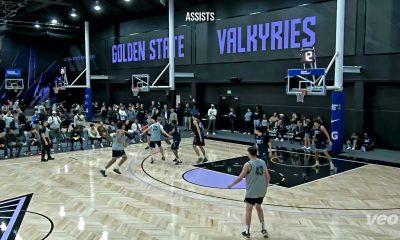
 High School Sports2 weeks ago
High School Sports2 weeks agoMaryland Basketball Recruiting



















